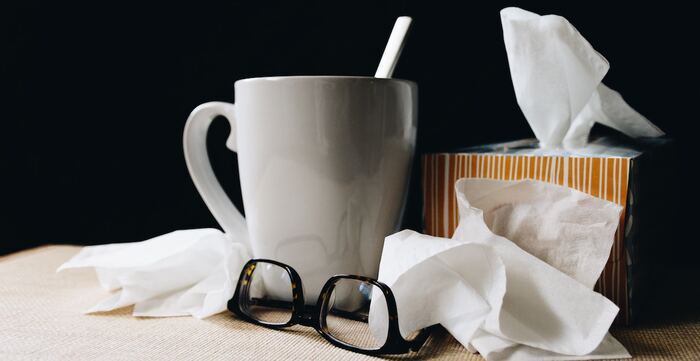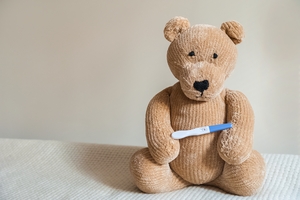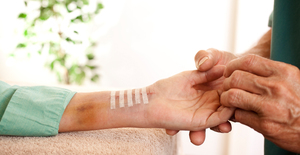Key points
- Over 200 viruses can cause the common cold, which can be prevented through good hygiene and a healthy lifestyle.
- Early symptoms of a cold include headaches, coughing, body aches, fatigue, sore throat, and nasal issues.
- Preventing a cold involves rest, hydration, maintaining humidity, eating nutritious food, reducing stress, and consulting a doctor if necessary.
- Other prevention measures include taking vitamin supplements, regular exercise, limiting alcohol, getting vaccinated, and practicing good personal hygiene.
- If a cold persists for longer than usual or if there's a history of complications like sinus or ear infections, it's recommended to consult a doctor.

The common cold is, unfortunately, just that—common. With over 200 viruses capable of causing cold symptoms, it's likely that most of us will experience at least one cold each year. These viruses can be easily transmitted through respiratory droplets, touching contaminated surfaces, or close contact with an infected person. While practicing good hygiene, such as frequent handwashing and maintaining a healthy diet, can help ward off these pesky viruses, it's also important to know how to act when you feel a cold creeping in. In this article, we'll explore effective strategies to prevent a cold from taking hold, as well as self-care tips you can implement at the first sign of symptoms to help you recover more quickly.
What are some common symptoms of a cold?
Recognizing the symptoms of a cold early on can help you take appropriate measures to manage your health and prevent the illness from worsening. While cold symptoms can vary from person to person, they typically manifest gradually and can last anywhere from a few days to a couple of weeks, according to the CDC.
Here are some common symptoms to watch for, according to the CDC, if you suspect you might be coming down with a cold:
-
Headache: A mild to moderate headache is often one of the first signs of a cold, caused by sinus pressure or congestion.
-
Coughing: A persistent cough may develop as your body tries to clear mucus from the throat and airways.
-
Body aches: Generalized aches and pains can occur as your immune system responds to the viral infection.
-
Fatigue: Feeling unusually tired or fatigued is common as your body works to fight off the virus.
-
Sore throat: A scratchy or sore throat can be an early indication of a cold.
-
Runny or stuffy nose: Nasal congestion and a runny nose are classic symptoms that often accompany a cold.
-
Sneezing: Frequent sneezing can occur as your body attempts to expel irritants from your nasal passages.
Best ways to prevent a cold
Preventing a cold is often more effective than trying to manage symptoms once the illness has taken hold. By adopting proactive measures and making healthy lifestyle choices, you can significantly reduce your risk of catching a cold. Below are some of the best strategies for cold prevention, from hygiene practices to dietary tips, empowering you to strengthen your immune system and stay healthy throughout the year. Here are some of the most effective ways to keep colds at bay.
1. Rest
A cold's worst enemy is a strong immune system and your body is never better at fighting invaders than when you're asleep. At the first signs of a cold, get to bed and let your body rest as long as it wants. For extra-restful nights, try sleeping with your head slightly elevated to combat nasal congestion.
2. Hydration
Water is the building block of life. Every vital system in your body needs water to function properly and you'll be using up more water than normal as your body fights illness. Make a glass of water or a cup of tea a constant fixture when you feel a cold coming on.
3. Humidity
Along with staying hydrated, you'll also want to make sure the air around you while you're sick isn't too dry. Sneezing, blowing your nose, and sweating will be a part of your healing experience, so as your body dries out you may have discomfort on your skin and in your nasal passages. A humidifier will combat those problems passively.
4. Nutritious food
That old saying, "Starve a fever, feed a cold" has plenty of truth to it. When a cold has invaded your body, the last thing it wants is to face a strong, vitamin-rich immune system. If you're feeling sick, eat hearty, nutritious meals that will give your body the fuel it needs to fight the invasion. This is especially true of energy-bolstering nutrients like Vitamin C, common in citrus and many other kinds of produce.
5. Reduce stress
Stress and anxiety can exacerbate a cold by putting additional strain on your blood pressure, heart rate, and other vital systems. A little cold can grow into a real knock-out if you succumb to stress while your immune system is on high alert. Avoid stressful environments and do whatever you need to do to relax so your body can fight in optimal conditions.
6. See a doctor
The common cold only lives in an otherwise healthy body for a few days, but it can weaken your immune system and open you up to additional complications like sinus infections, ear infections, and bronchitis. If you have a history of problems like these or if your cold persists for a longer time than normal, you'll want to consult with a physician to prevent or treat infections that are tagged along with your cold.
7. Vitamin supplements
Incorporating vitamin supplements into your daily routine can bolster your immune system and help ward off colds. Vitamins C and D, as well as zinc, are particularly known for their immune-boosting properties. Regularly taking these supplements, especially during cold and flu season, can enhance your body’s ability to fight off infections.
8. Exercise periodically
Regular physical activity is a key component of a healthy lifestyle and can significantly improve your immune response. Aim for at least 150 minutes of moderate exercise each week. Activities like walking, jogging, or cycling not only help reduce stress but also promote better circulation, allowing immune cells to move more freely throughout your body.
9. Avoid alcohol
Excessive alcohol consumption can weaken your immune system, making you more susceptible to infections like the common cold. Limiting your alcohol intake can help maintain your immune health and reduce the likelihood of falling ill. If you choose to drink, do so in moderation.
10. Get vaccinated
While there is no vaccine specifically for the common cold, staying up-to-date with vaccinations, such as the flu shot, can help prevent illnesses that may compromise your immune system. A healthy immune system is better equipped to fight off colds and other infections.
11. Personal hygiene is key
Practicing good personal hygiene is one of the most effective ways to prevent colds. Wash your hands frequently with soap and water, especially after being in public places or after coughing and sneezing. Additionally, avoid touching your face, particularly your eyes, nose, and mouth, to minimize the risk of introducing viruses into your system.
As frustratingly as colds are, a little extra self-care will make sure you get back into fighting shape when the sniffles come around. The key is to give your body the best conditions possible for the ensuing battle.
FAQs
What are the common symptoms of a cold?
Common symptoms include headaches, coughing, body aches, fatigue, sore throat, and nasal issues like congestion or a runny nose.
How can I prevent a cold?
You can prevent a cold by practicing good hygiene, maintaining a healthy lifestyle, recognizing early symptoms, and taking proactive measures such as rest, hydration, and eating nutritious food.
What lifestyle choices can help prevent a cold?
Regular exercise, limiting alcohol intake, getting vaccinated, and practicing good personal hygiene can significantly reduce the risk of catching a cold.
What role do vitamins play in preventing a cold?
Vitamins C and D, as well as zinc, are known for their immune-boosting properties. Regularly taking these supplements can enhance your body’s ability to fight off infections.
When should I see a doctor for a cold?
If your cold persists for longer than normal, or if you have a history of complications like sinus or ear infections, you should consult with a physician.
How can stress affect a cold?
Stress and anxiety can exacerbate a cold by putting additional strain on your blood pressure, heart rate, and other vital systems. A cold can become more severe if you succumb to stress while your immune system is on high alert.
When should I see a doctor for a cold?
You should see a doctor for a cold if you have a history of complications like sinus infections, ear infections, and bronchitis, or if your cold persists for a longer time than normal.
What is the key to recovering from a cold?
The key to recovering from a cold is to give your body the best conditions possible to fight the illness. This includes getting plenty of rest, staying hydrated, maintaining a nutritious diet, reducing stress, and seeking medical attention if necessary.









